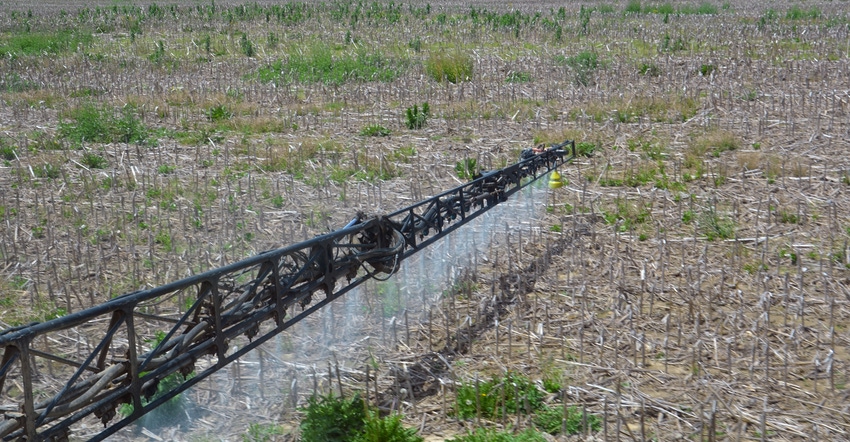March 16, 2020

You likely know the story of glyphosate. Discovered to have weed-killing properties by a Monsanto chemist, it’s been marketed as an agricultural herbicide since 1974 — first as Roundup, and then after the company’s patent expired, in dozens of generic products. You’ll also find glyphosate herbicide on the shelves of nearly all big-box lawn and garden stores.
Is it safe? The Environmental Protection Agency apparently believes so. It registers the products. There are reams of scientific-based studies required by EPA showing that when used according to label directions, glyphosate is safe. It’s not even a restricted-use pesticide. If it was, your suburban neighbor couldn’t buy it off the shelf.
Extreme environmental groups have long questioned glyphosate’s safety to human health. The public’s antenna perked up when the World Health Organization issued a report in March 2015 saying glyphosate was “probably carcinogenic to humans” without citing conclusive evidence. What got much less attention, however, was a report by the European Food Safety Authority in November 2015, clarified later, citing that glyphosate by itself was unlikely “to pose a carcinogenic threat to humans.”
That didn’t stop a California jury from siding with a plaintiff seeking damages for a specific cancer supposedly caused by glyphosate. It also hasn’t stopped lawyers from seeking others to join lawsuits, often through late-night TV ads.
Sort out truth
Common sense and science both indicate that when used according to label directions, glyphosate is safe. That doesn’t mean you may not be called upon to defend it when dealing with the public. Here are a couple of examples:
Things were going smoothly for an FFA chapter establishing a farm plot on school grounds until they mentioned spraying Roundup. Immediately, the facility supervisor demanded that it only be sprayed after school hours, preferably during a school holiday. He also required spraying by a certified custom applicator, not just a grower with a private applicator’s license.
Why? He acknowledged it was about perception — what parents would think.
More recently, a host on a Saturday morning radio call-in garden show, who himself owns multiple garden centers, was caught off-guard when he recommended a caller use Roundup to take out non-native grass in her yard. She wanted an option besides Roundup, and she didn’t fall for his “glyphosate” follow-up.
His co-host noted, “She’s concerned about the supposed cancer risk touted on the late-night TV legal ads.” She affirmed this, and even though the host assured her there is a preponderance of evidence suggesting glyphosate is safe, she didn’t relent. Instead, he advised she seek help from a professional landscaper.
Holly Spangler, editor of Prairie Farmer, sister publication to Indiana Prairie Farmer, sometimes talks to suburban housewives through various programs. “When a question about using Roundup comes up, I ask them to think of the most irresponsible person they know. Then consider that even that person can walk into Walmart and buy Roundup. That’s how safe it is,” Spangler says. “Most of them see the blend of common sense and science in that observation.”
Some, like the radio caller, may be firm, and that’s her right. It’s also your right to choose the product best suited to your needs and use it properly. Good stewardship goes a long way toward convincing reasonable people that you’re a grower who makes wise choices.
Comments? Email [email protected].
You May Also Like




